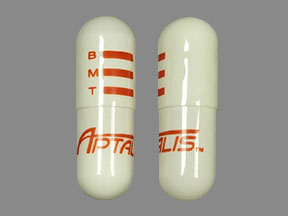
Pylera Coupons & Savings Card – Discount Prices from $186.52
Brand for: Bis subcit-metronid-tetracyc
My prescription
Edit
140-125-125MG, Bis Subcit-metronid-tetracyc (120 Capsules)
Select pharmacy

CVS
$186.52
COUPON PRICE
Albertsons
$397.20
COUPON PRICE
Walgreens
$442.20
COUPON PRICE
Walmart
$791.18
COUPON PRICEPylera savings card
Show this card to your pharmacist
CVS
$186.52
BIN
ID
PCN
GRP
019876
LH770D024A
CHIPPO
LHX
Powered by
Price history for Pylera (brand) & Bis Subcit-metronid-tetracyc (generic)
120 Capsules, 140-125-125MG
Average retail price for Pylera
Average retail price for Bis Subcit-metronid-tetracyc
Average SaveHealth price for Bis Subcit-metronid-tetracyc
Our price history data is based on aggregated prescription data collected from participating pharmacies in America. Our prescription data updates daily to reflect the latest price changes. If you notice a missing data point, it means there wasn't sufficient data available to generate a monetary value for that date.
Over the last 12 months, the average discount price of Pylera is $280.32 using the SaveHealth savings card. That's an average savings of 79.03% on Pylera with our discount card.
*Retail prices are based on pharmacy claims data, and may not be accurate when we don't have enough claims.
Pylera (Bis Subcit-metronid-tetracyc) dosage forms
Dosage Quantity Price from Per unit 140-125-125MG 120 Capsules $186.52 $1.55
| Dosage | Quantity | Price from | Per unit |
|---|---|---|---|
| 140-125-125MG | 120 Capsules | $186.52 | $1.55 |
How much does Pylera cost in the US?
The cost of Pylera in the United States can vary depending on factors such as the pharmacy, location, and whether the patient has insurance coverage. Without insurance, the price for a 10-day supply can range from approximately $800 to $1,000. Patients are advised to check with their local pharmacy for the most accurate pricing and to inquire about any available discounts or assistance programs.
What is the drug Pylera used for?
Pylera is used for the treatment of Helicobacter pylori infection and duodenal ulcer disease. It is a combination medication that includes bismuth subcitrate potassium, metronidazole, and tetracycline, and is typically used in conjunction with a proton pump inhibitor to eradicate the infection and reduce the risk of ulcer recurrence.
Why do you have to take omeprazole with Pylera?
Omeprazole is taken with Pylera to help reduce stomach acid, which enhances the effectiveness of the antibiotics in Pylera. This combination is used to treat Helicobacter pylori infections and associated ulcers. Omeprazole, a proton pump inhibitor, creates a less acidic environment, allowing the antibiotics to work more effectively against the bacteria.
What are the side effects of bismuth subcitrate potassium metronidazole tetracycline hydrochloride?
The combination of bismuth subcitrate potassium, metronidazole, and tetracycline hydrochloride can cause several side effects. Common side effects may include nausea, diarrhea, stomach pain, headache, dizziness, and a metallic taste in the mouth. Less common but more serious side effects can include severe allergic reactions, changes in vision, severe diarrhea, or signs of liver problems such as yellowing of the skin or eyes. It is important for individuals to contact their healthcare provider if they experience any severe or concerning symptoms.
What is the success rate of Pylera?
The success rate of Pylera, a combination medication used to treat Helicobacter pylori infections, is generally high. Clinical studies have shown eradication rates ranging from approximately 80% to 90% when used in conjunction with a proton pump inhibitor, such as omeprazole. However, individual success rates can vary based on factors like patient adherence to the treatment regimen and antibiotic resistance.
